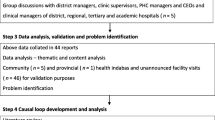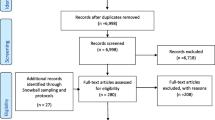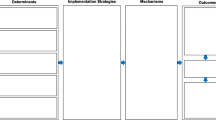Abstract
Can operations and implementation research guide today's unprecedented efforts to scale-up HIV/AIDS prevention, treatment, care, and support in resource-limited settings? Our study of patients with HIV/AIDS who were first seen at the Central Hospital (Yaoundé, Cameroon) to begin antiretroviral therapy demonstrates the value of using operations research to explore programs, policies, and guidelines used in health care. We studied one group of patients, those lost to follow-up. Our findings confirmed the value of early treatment, systems to follow individuals, free treatment, and resources that enable operations research. We encourage health-care workers and program managers to perform operational research in their own context, and we emphasize the importance of allocating adequate human, financial, and logistic resources for this activity. Finally, we stress that the health-care workers, program managers, and researchers must work together to better inform policy and guidelines.

Similar content being viewed by others
References
Foreit, J., Schmid, B., Korenromp, E., Low-Beer, D. and Xueref, S . (2008) Guide to operational research in programs supported by the Global Fund, World Health Organization and The Global Fund To Fight AIDS, Tuberculosis and Malaria, http://www.who.int/hiv/pub/operational/or_guide_gf.pdf, accessed 30 August 2011.
Cooper, D. et al (2007) The Sydney Declaration: A call to scale up research. Lancet 370 (9581): 7–8.
Zachariah, R. et al (2009) Operational research in low-income countries: What, why, and how? Lancet Infectious Diseases 9 (11): 711–717.
Katzenstein, D., Koulla-Shiro, S., Laga, M. and Moatti, J.P. (2010) Learning and doing: Operational research and access to HIV treatment in Africa. AIDS 24 (Supplement 1): S1–S4.
Jaffar, S. et al (2010) Health services strengthening in Africa – Research is a key component. Tropical Medicine & International Health 15 (11): 1270–1273.
Gray, J. (2010) Global health experts seek to transform programs through implementation science, Fogarty International Center, http://www.fic.nih.gov/news/globalhealthmatters/pages/0410_implementation.aspx, accessed 5 December 2011.
Dabis, F., Bazin, B. and Delfraissy, J.F. (2011) Implementation and operational research in francophone Africa. Introduction. Journal of Acquired Immune Deficiency Syndrome 57 (Supplement 1): S1–S2.
Braitstein, P. et al (2006) Mortality of HIV-1-infected patients in the first year of antiretroviral therapy: Comparison between low-income and high-income countries. Lancet 367 (9513): 817–824.
Bisson, G.P. et al (2008) Overestimates of survival after HAART: Implications for global scale-up efforts. PLoS One 3 (3): e1725.
Brinkhof, M.W. et al (2008) Early loss of HIV-infected patients on potent antiretroviral therapy programmes in lower-income countries. Bulletin of the World Health Organization 86 (7): 559–567.
Fox, M.P. and Rosen, S. (2010) Patient retention in antiretroviral therapy programs up to three years on treatment in sub-Saharan Africa, 2007–2009: Systematic review. Tropical Medicine & International Health 15 (Supplement 1): 1–15.
WHO, UNAIDS, and UNICEF. (2011) Global HIV/AIDS response. Epidemic update and health sector progress towards universal access. Geneva. Progress report 2011, http://whqlibdoc.who.int/publications/2011/9789241502986_eng.pdf, accessed 19 July 2012.
Institut National de la Statistique. (2012) Enquête Démographique et de Santé et à Indicateurs Multiples EDS-MICS 2011. Yaoundé. Rapport préliminaire sur la prévalence du VIH, http://www.statistics-cameroon.org/downloads/EDS-MICS11/DHSMICS_2011_preliminary_report_VIH.pdf, accessed 19 July 2012.
Harries, A.D., Zachariah, R., Lawn, S.D. and Rosen, S. (2010) Strategies to improve patient retention on antiretroviral therapy in sub-Saharan Africa. Tropical Medicine & International Health 15 (Supplement 1): 70–75.
Rubin, D.B. (1987) Multiple Imputation for Nonresponse in Surveys. New York: Wiley.
Egger, M. et al (2011) Correcting mortality for loss to follow-up: A nomogram applied to antiretroviral treatment programmes in sub-Saharan Africa. PLoS Medicine 8 (1): e1000390.
Brinkhof, M.W. et al (2010) Adjusting mortality for loss to follow-up: Analysis of five ART programmes in sub-Saharan Africa. PLoS One 5 (11): e14149.
Henriques, J. et al (2012) Comparison of methods to correct survival estimates and survival regression analysis on a large HIV African cohort. PLoS One 7 (2): e31706.
Yiannoutsos, C.T. et al (2008) Sampling-based approaches to improve estimation of mortality among patient dropouts: Experience from a large PEPFAR-funded program in western Kenya. PLoS One 3 (12): e3843.
Yu, J.K. et al (2007) True outcomes for patients on antiretroviral therapy who are ‘lost to follow-up’ in Malawi. Bulletin of the World Health Organization 85 (7): 550–554.
Weigel, R. et al (2011) Outcomes and associated risk factors of patients traced after being lost to follow-up from antiretroviral treatment in Lilongwe, Malawi. BMC Infectious Diseases 11: 31.
McGuire, M. et al (2010) Vital status of pre-ART and ART patients defaulting from care in rural Malawi. Tropical Medicine & International Health 15 (Supplement 1): 55–62.
Dalal, R.P. et al (2008) Characteristics and outcomes of adult patients lost to follow-up at an antiretroviral treatment clinic in Johannesburg, South Africa. Journal of Acquired Immune Deficiency Syndrome 47 (1): 101–107.
Geng, E.H. et al (2010) Understanding reasons for and outcomes of patients lost to follow-up in antiretroviral therapy programs in Africa through a sampling-based approach. Journal of Acquired Immune Deficiency Syndrome 53 (3): 405–411.
Brinkhof, M.W., Pujades-Rodriguez, M. and Egger, M. (2009) Mortality of patients lost to follow-up in antiretroviral treatment programmes in resource-limited settings: Systematic review and meta-analysis. PLoS One 4 (6): e5790.
Severe, P. et al (2010) Early versus standard antiretroviral therapy for HIV-infected adults in Haiti. The New England Journal of Medicine 363 (3): 257–265.
Kitahata, M.M. et al (2009) Effect of early versus deferred antiretroviral therapy for HIV on survival. The New England Journal of Medicine 360 (18): 1815–1826.
Sterne, J.A. et al (2009) Timing of initiation of antiretroviral therapy in AIDS-free HIV-1-infected patients: A collaborative analysis of 18 HIV cohort studies. Lancet 373 (9672): 1352–1363.
Walensky, R.P. et al (2009) When to start antiretroviral therapy in resource-limited settings. Annals of Internal Medicine 151 (3): 157–166.
Cohen, M.S. et al (2011) Prevention of HIV-1 infection with early antiretroviral therapy. The New England Journal of Medicine 365 (6): 493–505.
Writing Committee for the CASCADE Collaboration. (2011) Timing of HAART initiation and clinical outcomes in human immunodeficiency virus type 1 seroconverters. Archives of Internal Medicine 171 (17): 1560–1569.
Menon, S. (2010) Early initiation of antiretroviral therapy and universal HIV testing in sub-Saharan Africa: Has WHO offered a milestone for HIV prevention? Journal of Public Health Policy 31 (4): 385–400.
Laurent, C. (2010) Commentary: Early antiretroviral therapy for HIV infection in sub-Saharan Africa, a challenging new step. Journal of Public Health Policy 31 (4): 401–406.
Ministry of Public Health. (2010) Directives nationales de prise en charge par les antirétroviraux des personnes (adultes et adolescents) infectées par le VIH. Yaoundé, Cameroon: Ministry of Public Health.
Ministry of Public Health. (2007) Directives nationales de prise en charge des personnes vivant avec le VIH par les antirétroviraux. Yaoundé, Cameroon: Ministry of Public Health.
World Health Organization. (2010) Antiretroviral Therapy for HIV Infection in Adults and Adolescents: Recommendations for a public health approach.
Ministry of Public Health. (2004) Plan de décentralisation de la prise en charge par les antirétroviraux au Cameroun (2004–2005). Yaoundé, Cameroon: Ministry of Public Health.
Eboko, F., Abé, C. and Laurent, C. (2010) Accès décentralisé au traitement du VIH/sida. Evaluation de l’expérience camerounaise. Paris, France: Agence nationale de recherches sur le sida et les hépatites virales.
Boyer, S. et al (2010) Scaling up access to antiretroviral treatment for HIV infection: The impact of decentralization of healthcare delivery in Cameroon. AIDS 24 (Supplement 1): S5–S15.
Forster, M. et al (2008) Electronic medical record systems, data quality and loss to follow-up: Survey of antiretroviral therapy programmes in resource-limited settings. Bulletin of the World Health Organization 86 (12): 939–947.
Laborde-Balen, G. et al (2011) Mise en oeuvre d’un programme de suivi-évaluation des patients sous traitement antirétroviral dans un hôpital de référence et un hôpital de district rural au Cameroun. 16th International Conference on AIDS and STIs in Africa (ICASA 2011), Addis Ababa, Ethiopa (abstract WEAE0705).
Jahn, A. et al (2008) Population-level effect of HIV on adult mortality and early evidence of reversal after introduction of antiretroviral therapy in Malawi. Lancet 371 (9624): 1603–1611.
Mermin, J. et al (2008) Mortality in HIV-infected Ugandan adults receiving antiretroviral treatment and survival of their HIV-uninfected children: A prospective cohort study. Lancet 371 (9614): 752–759.
Badri, M., Wilson, D. and Wood, R. (2002) Effect of highly active antiretroviral therapy on incidence of tuberculosis in South Africa: A cohort study. Lancet 359 (9323): 2059–2064.
Montaner, J.S. et al (2010) Association of highly active antiretroviral therapy coverage, population viral load, and yearly new HIV diagnoses in British Columbia, Canada: A population-based study. Lancet 376 (9740): 532–539.
Laurent, C. and Delaporte, E. (2001) Epidemiology of HIV infection in sub-Saharan Africa. AIDS Reviews 3 (2): 59–66.
Acknowledgements
We thank all patients and staff of the Central Hospital (Yaoundé, Cameroon) who participated in the study. The study was supported by a grant from Ensemble pour une Solidarité Thérapeutique Hospitalière En Réseau (ESTHER; Paris, France). Jean-Marc Mben was the recipient of a master's fellowship from the French National Agency for Research on AIDS and Viral Hepatitis (ANRS; Paris, France), and Jules Brice Tchatchueng Mbougua was the recipient of a doctoral fellowship from the Institut de Recherche pour le Développement (IRD, France).
Author information
Authors and Affiliations
Corresponding author
Additional information
This study in Cameroon of patients lost to ARV treatment demonstrates the value of early treatment and of using operations research to explore programs, policies, and guidelines used in health care.
Rights and permissions
About this article
Cite this article
Mben, JM., Kouanfack, C., Essomba, C. et al. Operational research and HIV policy and guidelines: Lessons from a study of patients lost to follow-up from a public antiretroviral treatment program in Cameroon. J Public Health Pol 33, 462–477 (2012). https://doi.org/10.1057/jphp.2012.31
Published:
Issue Date:
DOI: https://doi.org/10.1057/jphp.2012.31




